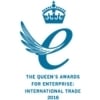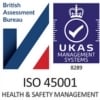This article was updated in August 2025 having originally been published in September 2023
Sustainability is now a central focus for businesses worldwide, with companies actively seeking ways to minimise carbon footprints and reduce waste. The die casting industry is no exception. Firms like MRT Castings are leading the way by adopting environmentally responsible manufacturing practices.
Manufacturing often carries a reputation for being resource-intensive and consequently bad for the environment. However, advances in technology and processes are helping change this perception. When carried out intelligently with an awareness of how to operate effectively, die casting can and does make a substantial contribution to lowering environmental impact.
1. Material Efficiency in Sustainable Die Casting
Die casting is a near-net-shape process in which molten metal is injected into precision moulds. This initial stage, when done correctly, ensures exceptional material efficiency. Unlike some manufacturing methods that generate significant surplus or scrap, die casting achieves a high yield, meaning the majority of the raw material becomes part of the finished product.
At MRT Castings, 100% of the dross from melting and swarf from machining are returned to the material suppliers for reprocessing. Trimmings from castings are remelted in-house, ensuring material waste is kept to an absolute minimum.
2. Energy-Efficient Melting and Production Systems
The equipment used in modern die casting is designed to minimise energy consumption through advanced, computer-controlled systems that optimise performance. The ability to recycle and reuse aluminium and zinc alloys further enhances energy savings.
MRT Castings uses high efficiency melting systems with recuperative gas burners fitted to all furnaces. These help to ensure energy is conserved throughout the process.
3. Recycling and Closed-Loop Aluminium Casting
Die casting offers excellent recycling potential for non-ferrous alloys. MRT works primarily with secondary aluminium alloys made from recycled material. This reduces demand for virgin metals and lowers the environmental impact of mining and refining. Finished products are also infinitely recyclable, extending their sustainable value. Even the packaging used for shipping is fully recyclable, aligning perfectly with our strong commitment to waste reduction.
4. Extended Product Lifespan
Die-cast components are renowned for their strength and durability. This means longer product lifespans. This reduces the need for frequent replacements, helping to lower waste and conserve resources over time.
5. Lightweight Components for Lower Emissions
The die casting process enables the creation of lightweight yet robust components. This is especially valuable in sectors such as automotive and aerospace, where reducing weight translates into improved fuel efficiency and reduced emissions. Optimised designs and lightweight materials play a direct role in achieving these benefits.
6. Local UK Manufacturing and Reduced Transport Footprint
UK-based die casting offers a valuable domestic manufacturing option, reducing the environmental impact of long-distance transportation. MRT Castings minimises its reliance on external transport by keeping most processes in-house, using local subcontractors where outsourcing is necessary. An in-house delivery fleet and consolidated international shipments further reduce carbon emissions. Returnable packaging options are offered to UK customers whenever possible.
7. ISO Certification and Environmental Compliance
UK die casting companies like MRT operate under strict environmental regulations. Partnering with a certified manufacturer ensures compliance and supports customers’ own sustainability objectives. MRT Castings’ Environmental Management System is certified to BS EN ISO 14001:2015, reflecting a proactive approach to managing environmental impact.
This system enables the identification of cost-saving opportunities in resource, waste, and energy management, benefits that are passed on to customers. It also ensures continual improvement through measurement, tracking, and strategic action.
By choosing die casting, businesses can benefit from precision-engineered, high-quality components while contributing to a more sustainable future.
At MRT Castings, sustainability is not an afterthought but a core principle. We set clear objectives, review our environmental policy annually, and work closely with employees, customers, suppliers, and other stakeholders to address shared environmental challenges.
With over 75 years of expertise in manufacturing premium aluminium die castings for diverse industries, MRT Castings is ready to support your next project.
Choose a Sustainable UK Die Casting Partner
MRT Castings delivers precision aluminium die castings with a focus on sustainability. From recycled alloys to energy-efficient furnaces, our ISO 14001-certified processes ensure environmental responsibility at every stage.
Contact us today to discuss your requirements, or explore our free resource, Notes for Designers, to learn more about optimising your casting projects.









